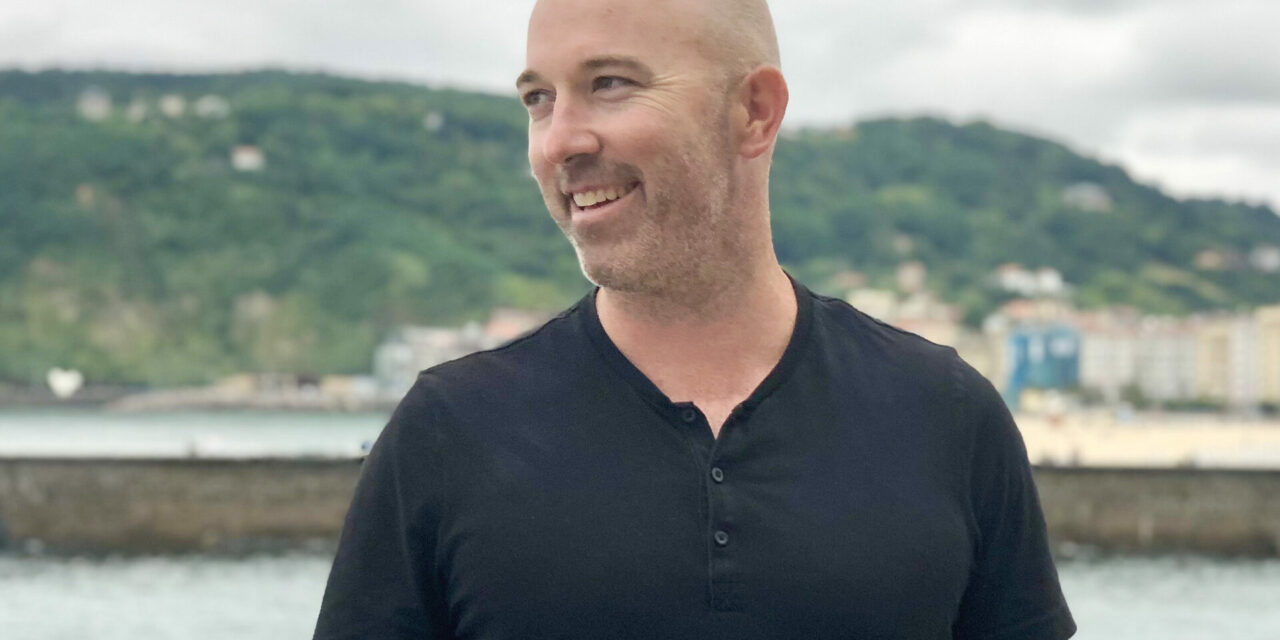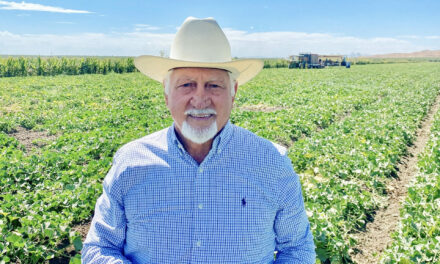Los Banos has a native son who is now famous as a published novelist. Julian Zabalbeascoa had his first novel published last month, acclaimed by both critics and fellow novelists.
The novel, “What We Tried to Bury Grows Here,” tells the story of Basques fighting against the military forces of Spain, Italy and Germany during the Spanish Civil War, just before the start of World War II.
Zabalbeascoa was born and grew up in Los Banos and in the countryside outside of Los Banos where local Basques raise sheep. He’s a 1997 graduate of Los Banos High School.
He now lives and teaches in Massachusetts, but he’ll be returning to Los Banos for a book discussion and signing in Los Banos’ Wool Grower’s Restaurant on Dec. 20 from 5 to 7 p.m. Everyone in the community is invited to attend.
Zabalbeascoa attended Los Banos schools—Our Lady of Fatima grade school and Los Banos Junior High, as well as Los Banos High. He credits his teachers—including Margaret Soares and Kathy Nerell at OLF and Ty Pafford, Frank Stone and Garry Hedlind at Los Banos High School—for supporting his lifelong interest in writing.
He grew up among sheepherders, including his own family, and spent many days and nights on his father Amador’s ranch. “I loved the ‘big sky’ during the day and the dazzling display of stars at night,” he told The Westside Express. “But I did not have the talent to be a cowboy and handle a horse. Thankfully!
“I think many people would have called me then ‘the dreamer,’” he said, “because my imagination definitely roamed. It was a sort of escape. My mom, Mary, encouraged me to pursue my non-ranching interests. I would not be the one advancing the family business. That was likely evident pretty quickly.”
After high school Julian received a scholarship to attend the University of the Pacific in Stockton, where he majored in English. A fellow LBHS classmate, Austin Roelofs, also enrolled at UOP.
“Austin and I were part of a remarkable class, the Los Banos High Class of 1997, which had many excellent students, including John Costa, Jason Yip, and Ryan Hartsoch,” Julian said. “We were part of a group who were encouraged by our teachers to be curious. There were upwards of 40 valedictorians and salutatorians. I didn’t make the cut for either group.”
At the end of his sophomore year at UOP, Julian decided that if he was to be a writer, which was his dream, he would need to have more life experiences and adventures. So he spent his junior year in a study abroad program in Spain, where he lived for a year in the Basque city of San Sebastian, a place he had visited before, when his mom and dad and brothers Mikel and John would travel to see family members.
“In the Basque Country,” he said, “I felt at home. I was not only Basque by birth but by culture and possibly even temperament. It’s a beautiful country, including cities like San Sebastion and Bilbao. And I felt a kinship with the people there.”
After concluding his year abroad, Julian returned to UOP campus to complete his senior year and graduate.
By then he had an itch, a craving to travel. He spent five months after college backpacking around Europe with a friend, from Spain to the Czech Republic. And then he decided to enroll in summer 2003 in the University of New Orleans. He was accepted into its Master of Fine Arts program in creative writing in Madrid, and he had the best of both of his dreams—travel and writing.
Once he completed his degree, he returned to Los Banos and began teaching English composition courses as an adjunct professor at the Los Banos Campus of Merced College and later at Monterey Peninsula College.
In 2012 he decided to move from California to Massachusetts to be close to Katie Sticca, who he had met summers ago in Madrid through the University of New Orleans, and landed a job as an adjunct professor at Bunker Hill Community College. Meanwhile he continued to write, and in that same year had a short story published in a literary journal.
While at Bunker Hill, he also landed a part-time assignment at the University of Massachusetts Lowell. With the encouragement of a dean there, he started leading and teaching study abroad programs, not only in Spain but in places like Havana, Belfast and Paris.
The genesis of his recently published novel began in 2011, when he became intrigued with a character that was a Basque fighting against Generalissimo Francisco Franco, a Spanish dictator in the1930s during the Spanish Civil War. It was the same war that Ernest Hemingway wrote about in “For Whom the Bell Tolls,” but Julian’s focus for that war was the Basque region.
It was a brutal war, and readers of Julian’s novel will feel its brutality. Franco was especially brutal against the Basques, who prided themselves on their independence. It wasn’t a coincidence that the Basque region also had extensive deposits of iron ore that Franco needed to wage war.
Julian, for the next nine years following his first published short story, continued to be intrigued, almost obsessed by the Basque resistance in the 1930s to the Spanish, who were helped by ground troops and aircraft sent to Spain by Benito Mussolini and Adolph Hitler.
In late 1937 one Basque town, Gernika (sometimes spelled “Guernica”) was bombed to ashes by Francos’s airstrikes. (That brutal annihilation of civilians was immortalized in a large mural painted by Pablo Picasso in 1938.) Gernika occupies a good portion of Zalbabeascoa’s book.
Finally, in 2021, Julian completed his novel, after several starts and stops and detours and began sending it to agents. On Nov. 9, 2021, just two days after Katie and Julian’s son Nico was born, Zabalbeascoa received an offer for representation from an agent.
Julian said this seemed to be in keeping with a Basque proverb, “Every newborn baby brings a loaf of bread under his arm” (in other words, brings good luck.) Two years later, nearly to the date, it was accepted for publication.
In the past month Zabalbeascoa’s book has received almost unanimously positive pre-publication reviews. Critics and fellow authors have been impressed with the book’s format: 20 chapters each told in the voice of a different character engaged in the Basque resistance during the Spanish Civil War.
Julian is gratified by the positive reception of his book, has been interviewed by the book reviewer of the Boston Globe and has been to many cities in the East for readings, book signings and interviews.
He has become something of an overnight celebrity. “It felt strange at first,” he said, “but I guess I’m getting used to it.”
Despite his celebrity status, he still remains close to his roots. In his acknowledgments, he thanks his mother Mary and father Amador, as well as his brothers Mikel and Jon, for their support and encouragement.
Julian hopes there will be a good turnout at Wool Grower’s on Dec. 20, not only of Basque family and friends, but of the many other people he has known in Los Banos. He also hopes to meet others who have never even heard of him, but who appreciate a novel that captivates the imagination and stirs the emotions.
Anyone who wants to know more about him and his writings can do an online search of “Julian Zabalbeascoa.” As far as he knows, he’s unique—the only person on the internet or in the world with that name.




